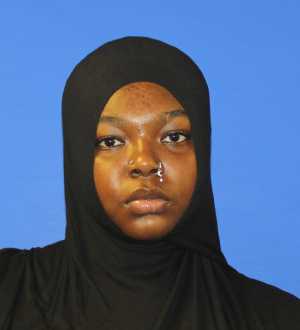Ancient Civilizations
Course Info
Assignments
Content
Resources
Return to schedule of responses
Topic: Mesopotamia
Due: Sun Feb 9
Prompt: What does the first tablet of Gilgamesh tell us about what it means to be civilized?
The document for this week is:
For your online response this week, write a post that includes the following:
- What passage or detail in particular jumped out at you as you read through this part of the story? Why did it strike you as interesting or surprising?
- What do you think the author was trying to communicate?
- What would you like to find out more about?
Responses for Week 2
Responses for week 2 of the course
 Mark Wilson
939
Mark Wilson
939
2025-02-03 20:05:45
Hi everyone! Here’s the page for our first round of weekly responses. The goal is to post your reactions to the readings, or in other weeks to examples of what we are talking about in class, as a way of helping us individually and collectively gain some insight into this specific place and time. Our online discussion this week relates to the first tablet of The Epic of Gilgamesh, which was the primary source reading assigned for Tuesday.
This kind of story may be new to a lot of you, and you may need to read through the tablet a time or two to get a sense of what’s going on. For this response, I want you to find a moment or scene that stands out to you, because it’s interesting or unexpected or because it gets you wondering.
Look for characters. Think about the individual people in the town and what they are experiencing. Find a moment and react to it with your own thoughts and ideas about what it tells us and what you want to know.
Week 2 response
 Shan Chaudhry
1484
Shan Chaudhry
1484
2025-05-19 19:12:07
The first tablet of Gilgamesh tells us how Enkidu was destined to be a challenger against Gilgamesh, whom had treated the people of Uruk so viciously and saw Enkidu in his dreams. Born in the wild, Enkidu, was tamed and guided by a sacred prostitute named Shamhat for six days and seven nights, taught by her knowledge of civilization and her ways of sex at the cost of being isolated from the animals Enkidu was friends with. What I find standing out to me was how Shamhat serves as a support for Enkidu in which she taught him norms, emotions, and social behavior. As for Gilgamesh, I think his tyrannical behavior was a representation of the behavior of man without generosity, as he was known to steal other men's newlyweds around his reign. However, Gilgamesh also has a mother who taught him to be strong and full of pride. What I could see from this is how women in those times could teach men their ways via perspectives and morality that can also affect their life decisions being positively or negatively.
Week 2 Response
 Tiare Muicela
1326
Tiare Muicela
1326
2025-04-16 14:08:51
To be civilized is to live in a structured urban society where people leave behind a wild, untamed life and embrace community, knowledge, and permanence. In the Epic of Gilgamesh, civilization is marked by grand architecture like temples, the development of literacy through written records, and organized religious rituals aimed at understanding the world. Social order is clear: kings and priests stand at the top, while farmers and slaves fall to the bottom. Civilization, then, means shifting from a natural, instinct-driven life to one shaped by rules, roles, and shared meaning.
As I read, I kept asking myself: who decides who becomes king? If there was a council of elders, why did they allow a tyrant like Gilgamesh to rule unchecked? If they knew he was oppressive and unjust, why didn't they intervene? People aren’t born cruel—they become that way. Was Gilgamesh neglected or shaped poorly as a child? We’re told his father was a god, but who was his mother, and was she present during his upbringing? If he was left to raise himself, could that explain his entitlement and cruelty?
Having a ruler who feels above everyone else is dangerous, especially if the people are culturally conditioned to follow blindly. It makes me wonder: did the people truly have a voice, or were they silenced by tradition? Gilgamesh was said to be two-thirds divine—so what kind of power did that give him? Even as a ruthless ruler, he eventually found someone he could relate to: Enkidu. Enkidu, a man of the wild, forms a deep bond with Gilgamesh, and through that friendship, they find common ground. Their shared journey transforms Gilgamesh, especially after Enkidu's death. Perhaps his harshness came from a lack of love and understanding—something he found only later in life. Being king must have been lonely, but did he ever seek help? In the end, he grew into a more compassionate, wiser leader—a redefined king who finally understood what it meant to care for others.
Tablet one Week 2 response
 Isaac Estrada Quinones
1121
Isaac Estrada Quinones
1121
2025-03-07 16:28:07
I find it interesting how the gods responded to the prayers of the people of Uruk for Gilgamesh's abuses. No man would be able to stop him knowing his capabilities, his tyranny would have no end without divine intervention. Creating his equal to make him reconsider (from what I understand, Enkidu was made to guide and help Gilgamesh improve) is a path I would not have imagined. I look forward to seeing what the meeting between Gilgamesh and Enkidu will be like, and the reaction of the people of Uruk to meeting an equal to Gilgamesh.
Tablet one
 Emily Romero
1071
Emily Romero
1071
2025-02-25 20:17:20
Reading the first table was interesting, having a tyrant king who is nothing but short of selfish, which is very common in history, but his subjects seem to think they do not have the power to change the situation in which they are living. Something else that stood out to me was the fact that Gilgamesh was excited. elated even when he dreamt he would have an equal. This tells me Gilgamesh sees himself as above everyone else to the point where only a goddess could create a being that is equal to him. Having Gilgamesh torment his subjects is almost entertainment for him since he seems bored because no one existed of his "caliber".
Tablet 1 discussion
 Evelyn Loja
1000
Evelyn Loja
1000
2025-02-11 23:07:27
A detail I found interesting was that Gilgamesh was happy instead of feeling threatened when he learned that there would be someone equal in strength approaching him. Since he is a king, I thought he would've felt threatened that Enkidu was going to challenge him for his power/role as king and he would've fought to protect his role. It turns out it's actually the opposite, Gilgamesh needed someone equal to him to make him realize what he is doing wrong. Since Gilgamesh is a king, he does not see his people as his equal. He knows he has power over them and uses that power without hesitation, but having an equal, a friend, could make Gilgamesh change his ways. Enkidu was a wild man before he coupled with Shamhat, he then learned to become more human. Through Shamhat's "work of a woman", Enkidu became more civilized and would be the balance Gilgamesh needed. I would like to find out how drastically Gilgamesh would change after meeting Enkidu and how they'll work together on their journeys.
Response 1
 Justin Shelton
997
Justin Shelton
997
2025-02-11 00:40:46
The moment that Gilgamesh saw in his dreams that he would meet his equal started when a star from the heavens fell to earth. When he tried to lift it, it weighed too much for his hand, and when he tried to move it, he could not dislodge it. This could foreshadow a man coming to Uruk to be King Gilgamesh's equal and have the same strength as him. This is because Gilgamesh is a tyrant who treats the people in his kingdom as one of his possessions since he is two-thirds god and one-third human, making him believe that he has power over his people. This angers the Gods, who see this man abusing the power of a king and a god, so the goddess Ninsun creates a wild man named Enkidu and sends him down from the heavens to challenge the strength of Gilgamesh and change the order in the kingdom of Uruk. The part of the passage talks about Enkidu's coming to Uruk to be Gilgamesh's equal in strength and a friend who will save him from his own tyranny. This part of the passage interested me the most because the coming of Enkidu might help him see the meaning of immortality.
Gilgamesh Entry 1, Week 2
 Yuma Laws
993
Yuma Laws
993
2025-02-10 02:36:54
This week’s reading particularly intrigued me in Enkidu’s relationship with Shamhat. I found it interesting how their dynamic was portrayed in this story, and I wondered how women were thought of in the ancient world. I wasn't expecting prostitution to be portrayed in a positive and valuable light, as it's often villainized in today's society.
As I read, I paid close attention to the dialogue between the two and concluded that Shamhat, at least in the story, is a catalyst for the change that is about to occur in Enkidu. She awakens his sense of duty, and he becomes encouraged to seek out Gilgamesh. The part that stood out was the translation’s use of words. They describe Shamhat as “doing the work of a woman,” which isn’t the intercourse itself but bringing Enkidu away from his herd and into civilization. As we discussed in class, the author is trying to communicate that women's roles are to transform men and teach them the values of relationships with others, as we see Enkidu and Gilgamesh realize they must "acquire a friend."
Response for Week 2
 [Former classmate]
992
[Former classmate]
992
2025-02-10 01:57:06
One part of the first tablet of The Epic of Gilgamesh that really stuck out to me was how Gilgamesh is described as this larger-than-life figure who’s supposed to be this incredible king, but instead, he’s kind of awful to his people. Like, the text says he’s taking sons from their fathers and daughters from their mothers, and it’s just wild how much power he has and how badly he’s abusing it. You’d think someone who’s part god would be more of a protector, but nope—he’s all about himself. What really got me though was how the people of Uruk respond. They don’t try to stop him directly which, I mean, fair—he’s super strong and part divine, but instead, they pray to the gods for help. It says a lot about their worldview that they just assume only the gods can step in and fix things. It makes me wonder what it would’ve been like to live in that kind of environment, where you’re completely powerless and all you can do is hope for divine intervention. Did they ever look up to him in some way, or were they just straight-up terrified all the time? This moment also makes me curious about how things are going to play out with Enkidu. The gods don’t just punish Gilgamesh—they create someone to balance him out, which feels like such a thoughtful and symbolic way of solving the problem. Like, instead of knocking him down a peg, they’re saying, “Hey, you need someone to challenge you and keep you in check.” It kind of hints that Gilgamesh is going to change and grow, which makes me want to keep reading to see how it all unfolds.
Week 2 Response
 Zachary Abdallah
991
Zachary Abdallah
991
2025-02-10 01:37:34
One moment in tablet one of gilgamesh that really stood out to me was the creation of Enkidu. When the people of Uruk tell Anu about Gilgamesh’s behavior they ask “Now create his equal, let it be like him as his own reflection, his second self”. This reminded me of the yin and yang concept where there’s two opposites that exist to form balance. It’s also interesting that when Gilgamesh mentions his dream of Enkidu to Ninsun, she keeps comparing Gilgamesh and Enkidu’s relationship to Gilgamesh being drawn to a woman. I feel like the author might be trying to convey early in the story how Gilgamesh and Enkidu are not just close partners but two halves of one whole. In lots of cultures a man and woman are also seen as two halves of a whole which could be what the author intended with Ninsun’s dialogue. The contrasts with Gilgamesh and Enkidu are seen throughout tablet one, like with Enkidu wanting to see Gilgamesh because he opposes his actions (abuse of power as king of Uruk). Another contrast is that Enkidu is created directly from the gods while the tablet makes sure to point out that Gilgamesh is a demi-god. This feels important because Enkidu isn’t said to be a demigod yet chooses to live in the wild at first while Gilgamesh has blood ties to the mortals yet is established to be disconnected to his people. The introduction of Enkidu stands out because to me Enkidu is intentionally written to be more than an ally to Gilgamesh, possibly showing the importance of close bonds in sumerian culture.
Gilgamesh, Tablet 1: The coming of Enkidu
 Segundo Alvarez
989
Segundo Alvarez
989
2025-02-09 23:54:04
One detail that surprised me about the Gilgamesh, Tablet 1 is the fact that Gilgamesh is two thirds god and one third human. Because with this detail I understood that he was the one who had control and authority over humanity and that he oppressed the people of Uruk a lot. But I was also surprised by the influence that the people had on the gods, because of a petition to stop Gilgamesh the gods created Enkidu to defy Gilgamesh.
With this I think that the gods cared about humans because they listened to the people of Uruk. And I think that the author was trying to tell us how Gilgamesh's government works and how sex and seduction had a great impact on men, this based on the Enduki evolution because he goes from a wild man to a human due to the seduction of Shamhat. And what I would most like to know is what will be the outcome for Gilgamesh and Enkidu.
Gilgamesh: The Coming of Enkidu
 [Former classmate]
988
[Former classmate]
988
2025-02-09 23:45:32
One thing that stood out to me in this passage was the role of Shamhat and the crucial part she played in transforming Endkidu into a more civilized human. The fact that just by being with her, he lost his connection to the wild and was rejected by the animals was fascinating. It felt symbolic, like it was saying something about the power women hold in shaping and influencing the world around them. The way she tames Enkidu isn't through force but through intimacy, and that completely changes who he is. I found that surprising because it shows civilization as something that comes through human relationships rather than just laws.
I think the author was trying to communicate how transformation and power work in shaping the world, and how important Shamhat's role was because she was the only one had the ability to bring that change. It makes me curious about Gilgamesh and Endkidu's companionship later on, how thier brotherhood plays a role in soxiety and helps balance things out. Also if Gilgamesg still feels thearten by the presnce of Endkidu. I'd like to know more about how their relationship dvevelops and what impact it has on the story as a whoe.
Gilgamesh, Tablet 1: The coming of Enkidu
 [Former classmate]
987
[Former classmate]
987
2025-02-09 23:41:28
The first Gilgamesh tablet enables us to see and comprehend how corrupt society may be, yet how it can also offer safety and wisdom. Enkidu is depicted in this tablet as a savage man who can become civilized through social interaction. Since he demonstrates what it means to be uncivilized, he is a significant person in this tablet. Shamhat, a sacred prostitute instructs Enkidu how to be civilized as she teaches him how to bathe, drink beer, and dress in ways he was not used to. How someone may start uncivilized and live unaware of such gestures and everyday routines until they come into contact with someone else intrigued me. This, in my opinion, speaks volumes about how a person develops and learns through participating in society and interacting with others. I believe the author wants us to understand that society is a symbol of corruption, whereas nature is linked to innocence. Both elements show a significant influence on the decisions and viewpoints society can impart and impose on these people. We can then analyze how culture and environment interact and endanger society and individual innocence. I would like to find out more about how someone’s thoughts and initial viewpoint of civilization can shift through human interaction and communication. I would like to see more in-depth what specifically drags people to decide upon certain actions.
Gilgamesh, Tablet 1: The Coming of Enkidu
 Miguel Rodriguez
984
Miguel Rodriguez
984
2025-02-09 22:42:42
A moment that stood out to me while I was reading, Gilgamesh, Tablet 1: The Coming of Enkidu was when I read this quote from Gilgamesh's mother in quotation marks. “My son, the axe you saw is a friend, like a wife you’ll love him, caress and embrace him, and I, Ninsun, I shall make him your equal. A mighty comrade will come to you, and be his friend’s savior,
mightiest in the land, strength he possesses, his strength is as mighty as a rock from the sky." Once I got done reading this deep and meaningful quote, my first thoughts and ideas were that Gilgamesh who is an all mighty and very powerful king just wants to protect those important to him, even if it costs him his own life. If it means living on with everyone, he'll get back on his feet as many times as it takes. To sum up everything that has been stated so far, Gilgamesh's mother just wants her son to know that he has always been a good man, he has always been putting himself second and finally she reminds him that his own life is well worth protecting and to not forget it.
Week 2 responses
 Aseya Floyd
981
Aseya Floyd
981
2025-02-09 21:08:49
One part of the reading that stood out to me was the taming of Enkidu. From the role of the prostitute, to the way Enkidu had to be tamed, which was by having intercourse for two weeks. It was very interesting to see the power the prostitute held and how important she was. In modern times prostitution is seen as a sin. But in the book it was like a divine act.
I believe the reason for this is because the act of intercourse is so intimate, it makes you vulnerable. So Enkidu became a man because of that vulnerability. This is what makes the prostitute so powerful for only she has the power to make Enkidu become a man.
Haylee Vega's Week 2 Response
 Haylee Vega
970
Haylee Vega
970
2025-02-09 18:49:03
In particular, what stood out to me, was the role of Shamhat. In class, as we discussed, women are limited to the roles of matriarch, maiden and harlot. But Shamhat's character seems to subvert these roles given to women by somehow being all three. She becomes not only a lover but a companion to Enkidu, she gives him this new sense of purpose that ultimately leads to his rebirth once the gazelle's reject him it shows us that he has left his old family, and enters a new society which humanizes him as Shamhat takes his side solidifying their companionship. It makes me wonder if people at the time began to question the roles given to women. Did they disapprove? Or was Shamhat the exception?
Another thing that stood out to me was the friendship between Enkidu and Gilgamesh. I want to observe how different male friendships were then vs now. It's obvious that the author puts an emphasis on community and on friendship, as it centers around Gilgamesh and Enkidu's own friendship. Seeing as there is a lonliness epidemic, seeing as how female friendships and male friendships seem to be vastly different then and now, I wonder just how much has changed when we explore this story further, and I invite other people to give their insight on their own friendships.
tablet 1
 Andrea Martinez
966
Andrea Martinez
966
2025-02-09 16:02:03
The thing that stood out to me the most was on how Enkidu was described as "the wild man" and "brought up by animals of the wild". It stroke me the most because Enkidu becomes a man who can be able to live in the community. I think the author is trying to communicate the difference between Enkidu and Gilgamesh and how they are both completely opposites. I would like to know more on how Enkidu being a changed person will he use that against Gilgamesh or go back to being a man of the wild.
Gilgamesh Tablet 1
 Ericka Hector
964
Ericka Hector
964
2025-02-09 14:32:22
One part that stood out to me in Gilgamesh Tablet 1, THE Coming of Enkidu was how Enkidu was first described as wild and living with animals. He drank from rivers and ran with gazelle’s acting more like a wild animal than a person. This surprised me because most heroes and stories are strong warriors, but he started off more like an animal.
I think the author wants to show that the two of them are opposites Gilgamesh is powerful and civilized, while Enkidu is free and wild. Their meeting brings balance because they change each other. The story also shows how humans are different from animals, especially when Enkidu becomes more like a person after meeting Shamhat.
From what I read, civilization means living in a city, following rules and acting differently from wild animals. Gilgamesh builds, walls and temples, while Enkidu learns to eat bread, drink wine, and wear clothes. After this, the animals reject him showing he is no longer one of them. This made me think that civilization separates humans from nature. It brings knowledge and responsibility, but it also takes away some freedom. I wonder if the story is saying that being civilized is always better or if something is lost in the process.
Response to tablet 1
 Kyo Matsubara
963
Kyo Matsubara
963
2025-02-09 12:05:36
I strongly impressed by this sentence "Gilgamesh was his name from the day he was born, two-thirds of him god and one third human," which show the authority he had in the term. It is undeniable that people in Uruk were afraid of his existence because of his overwhelming power. God could also be feared as some individuals think it as omnipotent and omniscient. Additionally, the sentence also describes the capriciousness of him, which can be thought the lack of the morality as a person. As well, God is sometimes explained as a being like Gilgamesh because it sometimes generates disasters. Nevertheless, while god is definitely respected by people, masses in Uruk were absolutely dissatisfied with the king, Gilgamesh, due to his tyrannical
side. For instance, he often treated his people harshly, such as robbing newlyweds of their husbands. Therefore, the author seems to foretell Gilgamesh's future changes as a king of Uruk. I am going to follow Gilgamesh's feeling as not only a king, but also a person through reading.
Tablet 1
 Alyssa Garcia
961
Alyssa Garcia
961
2025-02-08 20:33:07
In the first tablet of the Epic of Gilgamesh, Shamhat’s role is pivotal in transforming Enkidu from a wild man into a more civilized being. She is sent by the hunter to tame Enkidu, using her beauty and sexuality to draw him away from the animals and teach him about human society. By seducing Enkidu, Shamhat initiates his entry into the world of human experience, showing him the pleasures and complexities of human life. Her actions illustrate the role of women as catalysts for change in the epic. Although she is a sexual figure, Shamhat’s influence extends beyond this role. She becomes a teacher, guiding Enkidu to understand human behaviors, emotions, and societal norms. Through her, the epic suggests that women have the power to shape men’s destinies and play key roles in their transformation, linking them to both nurturing and transformative forces in the world.
week 2
 Ian Castillo
957
Ian Castillo
957
2025-02-08 19:27:25
something that I notice was before Enkidu meets Shamhat he was considered the " child of nature "and " the savage man from the midst of the wild" and people was telling Shamhat to let him take in her charm. overtime he was turned from a man of the wild to a man that can be allowed in a community. what the author is trying to tell us with this is that civilization can happen at any time and the effects of civilization have on people. I am curious if Enkidu will try to fight the civilization, or will he let it happen?
Tablet 1
 Theresa Iurilli
951
Theresa Iurilli
951
2025-02-08 10:00:19
Something that caught my attention in this Tablet was how Shamhat changed Enkidu into a responsible member of the community. This showed the power and influence that women have on men. I don’t think a man would’ve been able to make this transformation. This Tablet also shows redemption, how at first Enkidu didn’t fit in with the community and he was a beast man. Then he becomes civilized. I would like to find out more about if he stays connected to nature or completely evolves.
Week #2
 Bryan Lluilema
950
Bryan Lluilema
950
2025-02-08 00:44:29
The Coming of Enkidu was how Enkidu changed after meeting Shamhat. At first, he was wild and free, living with animals, but after spending time with her, he became more human and could no longer return to his old life. I thought this was interesting because it showed how powerful human influence can be. It also made me wonder if Enkidu ever regretted leaving his old life behind or if he was truly happy with the change. Also, his transformation happened so fast, and it felt like he didn’t have much of a choice. I think the author was trying to show the difference between nature and civilization and it made me think about whether civilization is something people naturally want or if it's just something they are shaped into.
Week 2
 Cristina Cabrera
949
Cristina Cabrera
949
2025-02-08 00:36:24
One passage that caught my attention in Gilgamesh, Tablet 1: The Coming of Enkidu was when Shamhat introduces Enkidu to human culture. I found it very interesting, as when he was introduced to human culture he began to become more human, losing his connection to nature. Also, I found it interesting that he learned and acquired knowledge. I think the author is trying to show the power that humanity has and how it transitions from nature to civilization. Furthermore, I would like to know how Endiku ends up, in the sense of whether he becomes bad or good, if he sometimes thinks about how he was before, does he miss his past life? or if he feels better being where he is.
Week 2 Response
 Christian Grullón
948
Christian Grullón
948
2025-02-06 17:50:54
Tablet 1 of the Epic of Gilgamesh presents Gilgamesh as a power-abusing tyrant ruler for which the creation of Enkidu as his equal and counterbalance is created. This portrayal is an expression of humanness and the balance and redemption concept in literature. The author intends to show that Gilgamesh's tyranny and divine intervention are to comment on leadership and the consequences of its abuse of power. The friendship of Gilgamesh and Enkidu facilitates a vision of responsibility within the prince: to show empathy and humility. A deeper understanding of the cultural context of kingship in ancient Mesopotamia and divine interventions may provide deeper insights into the moral fiber of this narrative.
Week 2 response
 Heavynly Pierce
947
Heavynly Pierce
947
2025-02-05 20:41:32
What stood out to me was when Enkidu who was “wild” met Shamhat and started changing and acting more humanlike. What also stood out to me is the way the author described Gilgamesh and showed him as a harsh ruler who makes his people suffer, which is interesting because it shows how a great leader can also have flaws. I think the author was trying to communicate what a good leader is what to do and what not to do and how to be strong and a successful leader. Which makes me think, what makes a good leader? During that time and how it changes over time.
Response for Week 2
 Brandon Ramirez
945
Brandon Ramirez
945
2025-02-04 20:38:18
- The moment when Enkidu is transformed from a wild man into a more human-like figure after his encounter with Shamhat. This transition is marked by his loss of innocence and wild nature as he becomes more attuned to human society.
- It’s interesting because it shows how human society "civilizes" people, but also how that transformation can take away something essential—Enkidu’s connection to nature. The shift from wild to human seems to come with both benefits and losses.
- The author is likely exploring the tension between nature and civilization. While civilization brings knowledge and community, it can also strip away a person’s primal essence and freedom.
- I’d like to know how Enkidu’s internal struggle evolves as he spends more time with Gilgamesh. Does he ever feel torn between his wild origins and his new human life? What does he ultimately learn about the balance between the two?